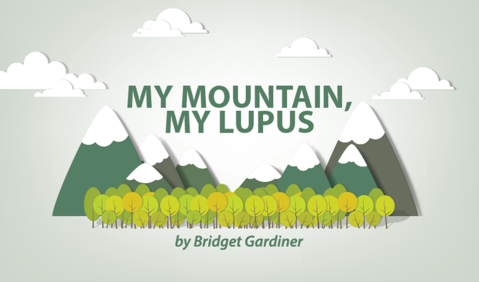Lupus and Pain Management: Begging for a Painkiller
Written by |

I’ve been wanting to talk about this subject for a while now, but it’s so complex a topic that I didn’t even know where to start. Hell, I hate ’em and love ’em all in the same instance, but they are a necessary evil in my life. You might have seen the news lately regarding opiates and the high amount of overdoses in America. No one really knows how reducing a prescribed painkiller would really affect someone with a chronic illness. I am going to start with a little background info on painkiller(s) so you have more than just a basic knowledge.
Living with Lupus means that, at some point or another, I am going to be taking a painkiller. I currently take Oxycodone and/or morphine, depending on where the pain is and how truly terrible it feels. I try to wait as long as I can until the pain is so unbearable that I am literally sobbing on the bathroom floor. Ultimately, and especially if I am in a flare-up, it’s a matter of when, not if. Down the hatch goes the painkiller, and for a few hours it feels … less.
Oxy doesn’t “feel good” at all, and in fact it’s kind of a yucky feeling. Like somehow you’re not quite there but you are still totally there. Same with the pain. It’s more like you just don’t care that it hurts, if that makes sense. I get itchy from it first of all, and it makes my skin super dry. I feel dehydrated and cranky. I tend to try to “do”more and then end up overdoing it, and hurting myself.
Opiates are either found naturally in the poppy plant or produced/manufactured in a lab, predominantly by pharmaceutical companies.
The NIDA (National Institute on Drug Abuse) states:
Medications [Painkillers] that fall within this class include hydrocodone (e.g., Vicodin), oxycodone (e.g., OxyContin, Percocet), morphine (e.g., Kadian, Avinza), codeine, and related drugs. … Opium and Heroin are also opiates, and therefore fall into the category of Opiate use, drug abuse, and overdose statistics.
I have been taking an opiate painkiller off an on, but fairly consistently, for about the last five years now. Trust me when I tell you this life, that I am living now, is not how I pictured my 30s. I mean, there I was, in the “prime” of my life, recently divorced and, though scared, I was innocently hopeful. I had walked away with nothing, heavy from the stench of defeat and loss. My spirit was broken and my body was beginning to show symptoms of what would later be diagnosed as Lupus.
I was lucky to escape with my children and my “mana,” my power, my passion, my fiery warrior spirit.
What I could not escape was the fact that I had a chronic illness. My life would now include a ridiculous number of medications with a full symphony of side effects.
I try to get through the morning, then I try to get through the afternoon, then I try to go to sleep at night. This is my daily routine of pain management, literally just trying to get by. I mean I meditate, I go for walks, I do Yoga when my body isn’t in a full rebellion. I try to stretch out my muscles, I take warm baths, I use ice packs for migraines and wraps for joint pain. I put Icy Hot on my left hip and lower back every night and have for over 18 months now. My pain management varies by the hour, and the cost of visits to the doctors for pain management alone can be sky-high.
At one point, I was taking over 28 pills throughout a given day. Many of them painkiller(s).
From antacids to Xanax, Benlysta to chemotherapy, they all wreak massive havoc on one part of your body or another. It truly becomes a battle of whether the positive effects of the drug outweigh the bad. Last week at my regular Dr. visit, he let me know that he would,
“have to lower and change the dosages on your pain meds. Moving forward, … that high of an amount would cause a red-flag on your chart and alert the DEA.”
Now don’t get me wrong. I am glad he’s helping me walk the tight rope of effective pain management and not being red-flagged. But are you freakin kidding me? How the hell did the DEA just get involved in the treatment of MY lupus?

When did the war on drugs become a war on the disabled?
If you’re going to take away my painkillers, then give me a better one that isn’t highly addictive and killing people. But if we are going down this road, then you need to start addressing abuse for what it is — its own disease. Please leave me and my disease alone until you’re ready to actually get serious about pain management. It’s real and we do need better options.
I seriously hesitated to bring this up, 1. because I myself have love/hate relationship with them, but 2. out of fear. Pain management is a bit of a taboo subject and I always worry it makes me sound weak. As if, since I can’t handle it through other remedies, I am not as good of a person. But you know what? I am a good person and no one on this planet has ALL of the answers. We will never find a single answer if we do not start talking about it.
Someone other than myself and my Dr. made a decision to put my body at risk of another flare-up. I can’t even begin to understand why. Is it so that we as a society can pretend that addiction isn’t a mental health issue? Is it that the medical industry has been pushing highly addictive and dangerous medicines on the chronically ill? You know, as much as I want a cure for the future and a better painkiller tomorrow, can we address the real issue of opiates today? It’s time to stop making the disabled feel like we are begging for a painkiller.
Note: Lupus News Today is strictly a news and information website about the disease. It does not provide medical advice, diagnosis, or treatment. This content is not intended to be a substitute for professional medical advice, diagnosis, or treatment. Always seek the advice of your physician or other qualified health provider with any questions you may have regarding a medical condition. Never disregard professional medical advice or delay in seeking it because of something you have read on this website. The opinions expressed in this column are not those of Lupus News Today, or its parent company, Bionews Services, and are intended to spark discussion about issues pertaining to Lupus.






